-
A Forgotten Disability: A Parental Survey on Patients in West Virginia with Cleft Lip and Palate
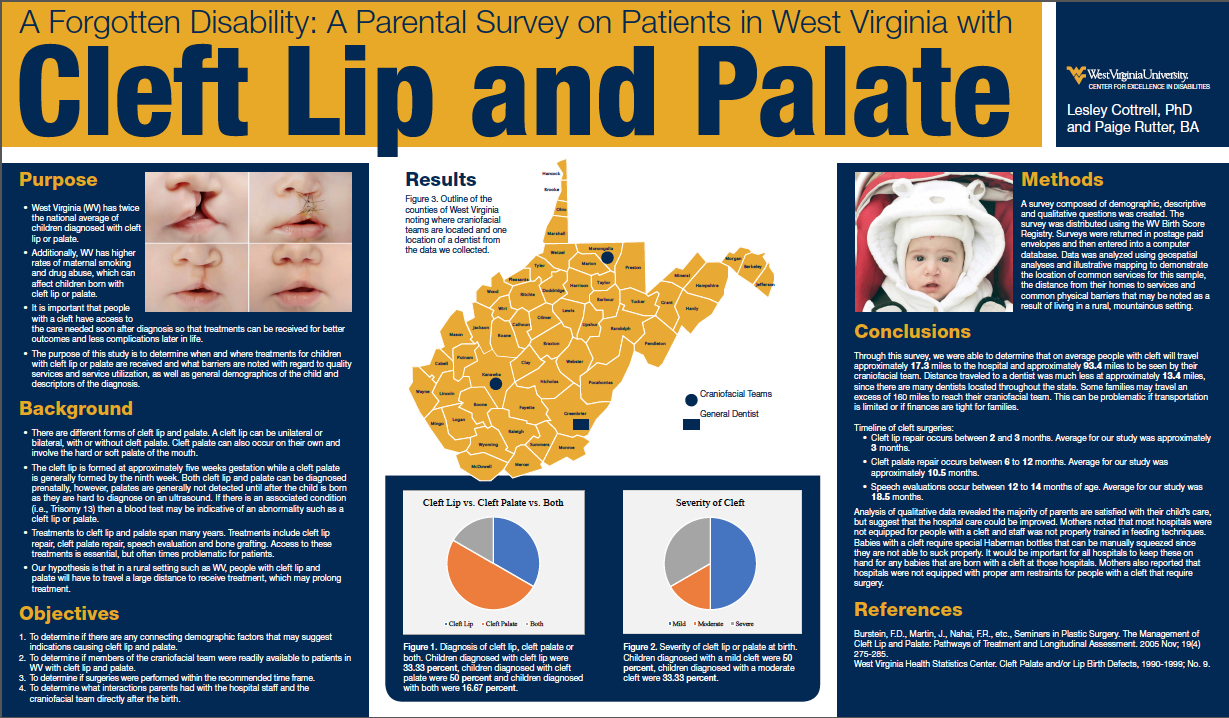
There are different forms of cleft lip and palate. A cleft lip can be unilateral or bilateral, with or without cleft palate. Cleft palate can also occur on their own and involve the hard or soft palate of the mouth.
Read the full A Forgotten Disability Poster (PDF)
Read Text Only Version of A Forgotten Disability Poster (PDF)
-
2017 WVU CED Diversity and Disability Fellowship Project: Diversity and Disability Educational Content Expansion in Medical Curriculum

The West Virginia University Center for Excellence in Disabilities (WVU CED) Diversity and Disability Fellowship (DDF) program works in collaboration with the West Virginia Leadership Education in Neurodevelopmental Disabilities (LEND) program. In 2016-2017 and through the LEND and DDF programs, a second-year diversity fellow continued to obtain real-life experience by attending and supporting several interdisciplinary clinical and field experiences including the Social Group for Teens with Autism, the intensive Autism Services Delivery (iASD) Clinic, the Feeding and Swallowing Clinic, the Next Steps Clinic, the Klingberg Neurodevelopmental Clinic and the Children with Special Health Care Needs (CSHCN) Clinic.
Read the full 2017 WVU CED Diversity and Disability Fellowship Project Poster (PDF)
Read Text Only Version of 2017 WVU CED Diversity and Disability Fellowship Project Poster (PDF)
-
Cultivating Change: Implementing and Responding to a Center-wide Cultural and Linguistic Competence Assessment

Assess the WVU CED's current strengths and areas for growth related to cultural and linguistic competence.
Read the Full Cultivating Change Poster (PDF)
Read the Text Only Version of Cultivating Change Poster (PDF)
-
Advocating for Client Unmet Needs/Gaps in Services for Persons with Feeding and Swallowing Disorders
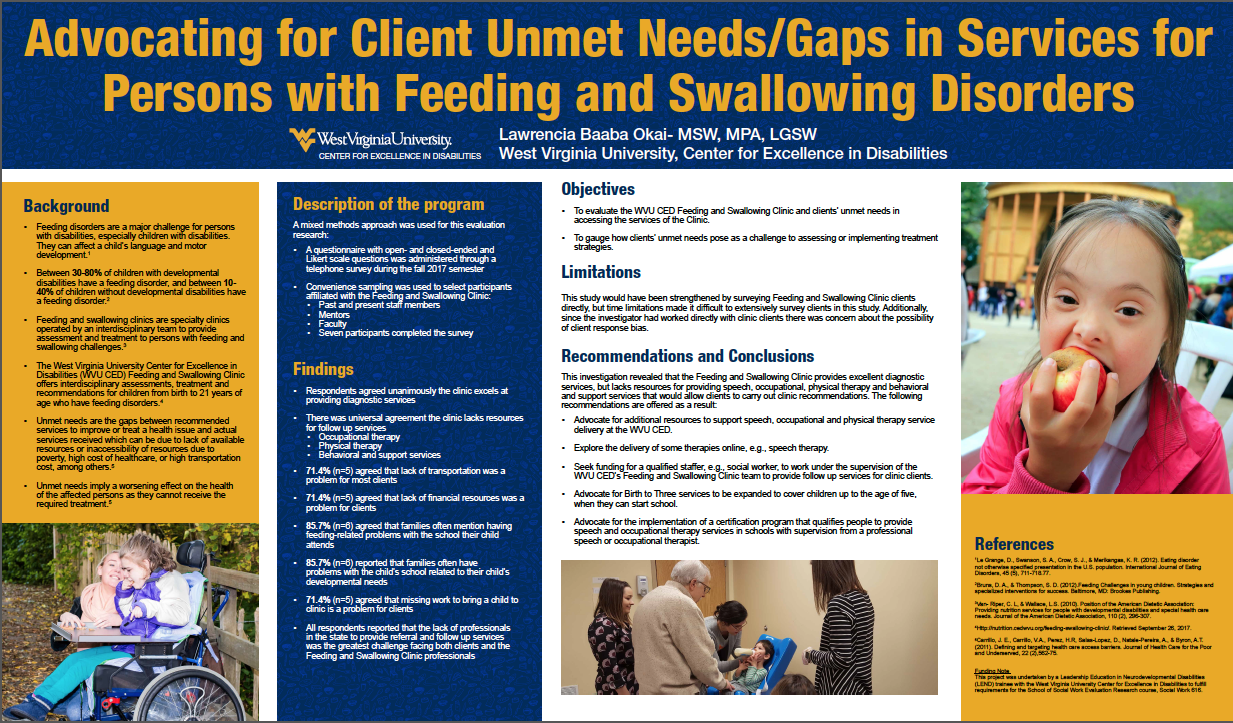
Feeding disorders are a major challenge for persons with disabilities, especially children with disabilities. They can affect a child's language and motor development.
-
Finding Their Voices: How LEND Student Therapists Utilize Mand Training to Assist Young Children with Autism to Develop Language
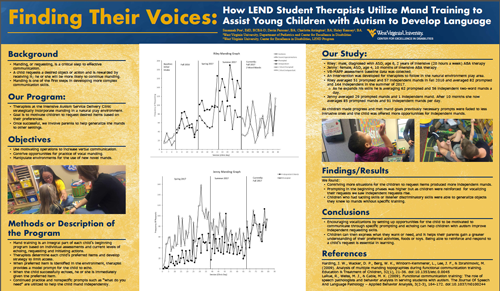
Manding, or requesting, is a critical step to effective communication. A child requests a desired object or action and is rewarded by receiving it; he or she will be more likely to continue manding. Manding is one of the first steps in developing more complex communication skills.
Read the Full Advocating for Finding Their Voices Poster (PDF)
Read the text Only Version of Advocating for Finding Their Voices Poster (PDF)
-
Developing and Sustaining State Partnerships That Quicken State Response to Individuals with Disabilities and Their Families During Natural Disasters
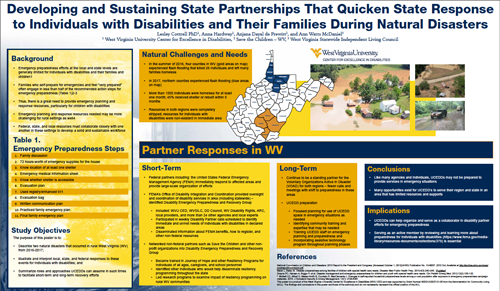
Emergency preparedness efforts at the local and state levels are generally limited for individuals with disabilities and their families and children.
-
Lifting our Voices for Inclusive Community Music - Making:An Intergenerational Choir
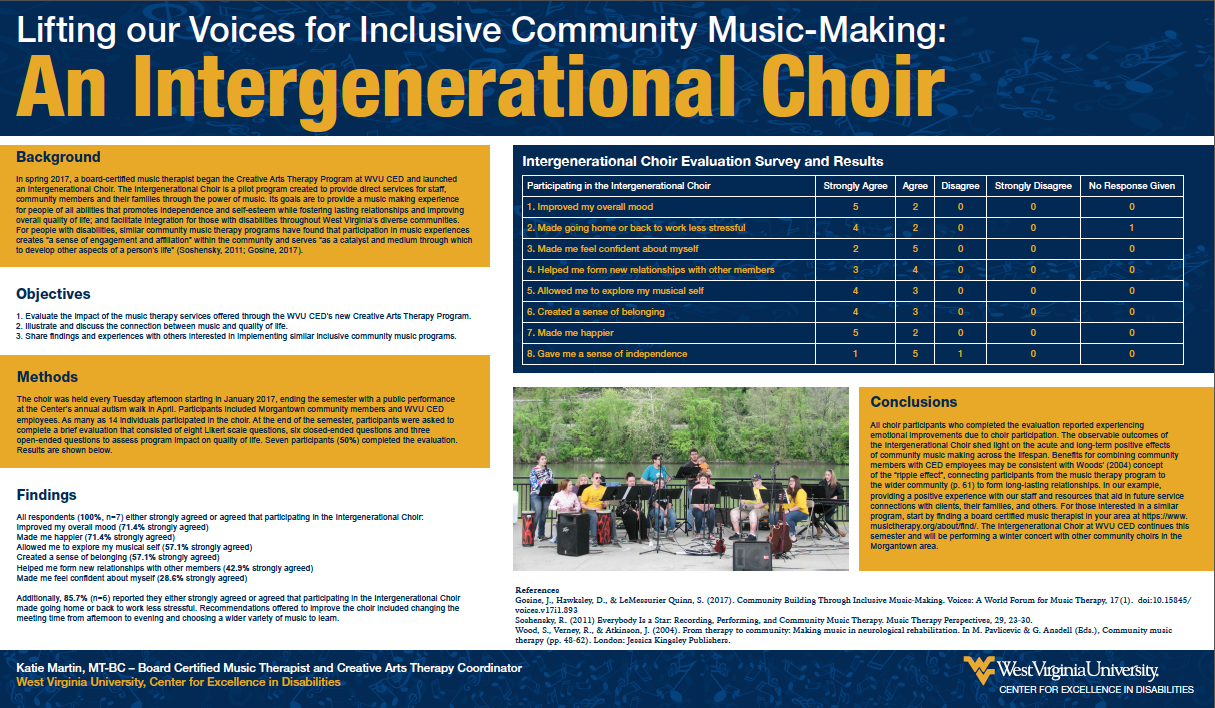
In spring 2017, a board-certified music therapist began the Creative Arts Therapy Program at WVU CED and launched an Intergenerational Choir. The Intergenerational Choir is a pilot program created to provide direct services for staff, community members and their families through the power of music. Its goals are to provide a music making experience for people of all abilities that promotes independence and self-esteem while fostering lasting relationships and improving overall quality of life; and facilitate integration for those with disabilities throughout West Virginia's diverse communities. For people with disabilities, similar community music therapy programs have found that participation in music experiences creates "a sense of engagement and affiliation" within the community and serves "as a catalyst and medium through which to develop other aspects of a person's life" (Soshensky, 2011; Gosine, 2017).
Read the Full Lifting our Voices for Inclusive Community Music AUCD Poster (PDF)
Read the Text Only Version Lifting our Voices for Inclusive Community Music Poster (PDF)
-
Returning to the Classroom After Concussion: West Virginia's Road to Return to Learn
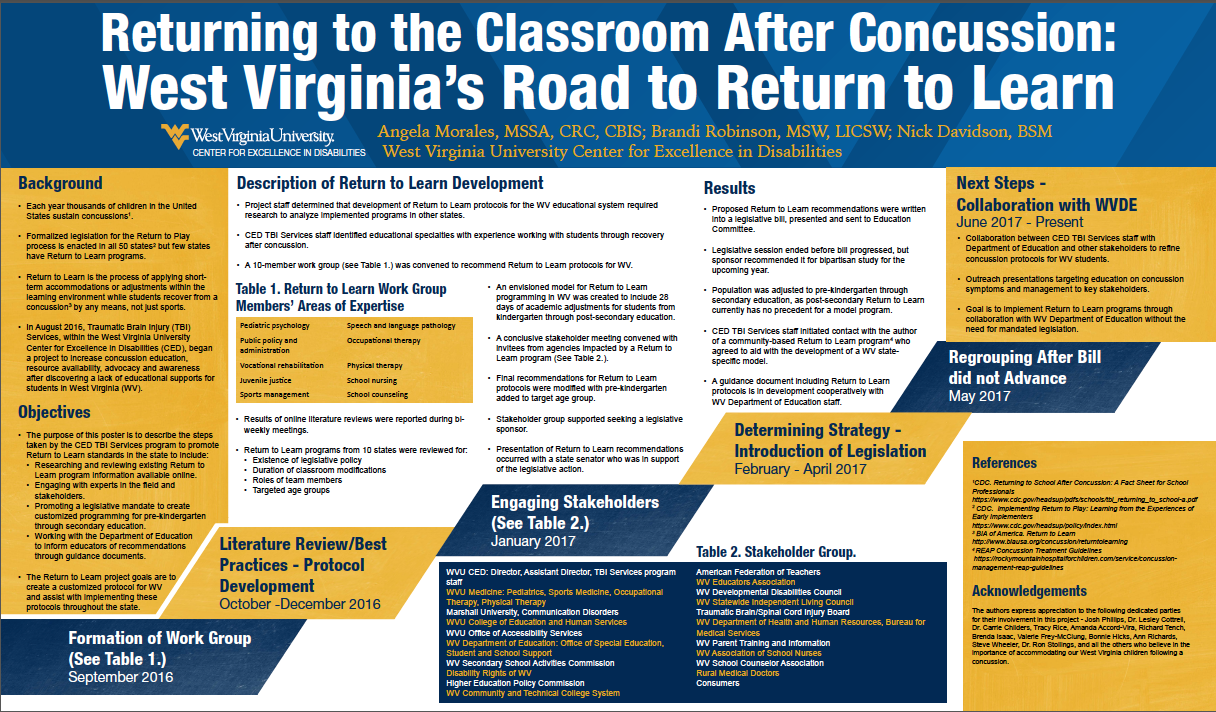
Each year thousands of children in the United States sustain concussions.
Read the Returning to the Classroom After Concussion Poster (PDF)
Read the Text Only Returning to the Classroom After Concussion Poster (PDF)
-
West Virginia's Traumatic Brain Injury Registry: A Rural State's Chronological Exploration of TBI Trends
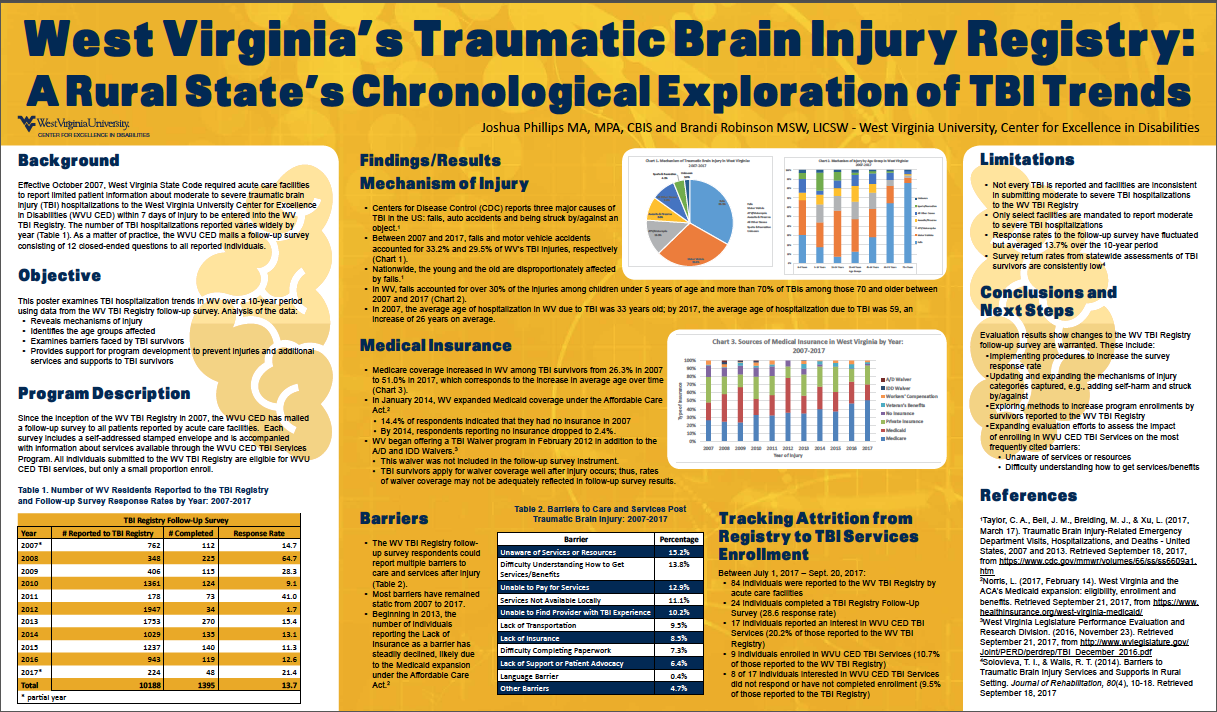
Effective October 2007, West Virginia State Code required acute care facilities to report limited patient information about moderate to severe traumatic brain injury (TBI) hospitalizations to the West Virginia University Center for Excellence in Disabilities (WVU CED) within 7 days of injury to be entered into the WV TBI Registry. The number of TBI hospitalizations reported varies widely by year (Table 1). As a matter of practice, the WVU CED mails a follow-up survey consisting of 12 closed-ended questions to all reported individuals.
Read the West Virginia's Traumatic Brain Injury Registry Poster (PDF)
Read the Text Only Version West Virginia's Traumatic Brain Injury Registry Poster(PDF)
